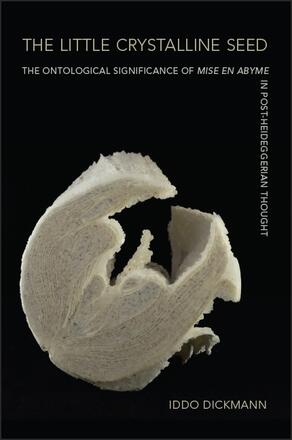
The Little Crystalline Seed
The Ontological Significance of Mise en Abyme in Post-Heideggerian Thought
Alternative formats available from:
Shows how contemporary French philosophy adopted this literary paradigm and argues for its significance for addressing concerns in ethics, ontology, and aesthetics.
Description
Mise en abyme is a term developed from literary theory denoting a work that doubles itself within itself—a story placed within a story or a play within a play. The term flourished in experimental fiction in midcentury France, having not only a strong impact on contemporary literary theory but also on post-structuralist philosophy. The Little Crystalline Seed focuses on how thinkers invoke the concept of mise en abyme in order to establish ontologies that deviate from that of Heidegger. Iddo Dickmann demonstrates how the concept served in modeling Jacques Derrida's logic of supplementarity; Maurice Blanchot's mechanism of désouvrement; Gilles Deleuze's philosophy of repetition; Emmanuel Levinas's concept of "proximity," and in further circuit: the philosophies of Bergson, Kant, Leibniz, Heidegger himself, and more. Exploring the interpretative and generative potential of the mise en abyme for continental thought, Dickmann reveals new points of resonance between various philosophical topics including, aesthetics, ethics, time, logic, mirroring, play, and signification.
Iddo Dickmann is Lecturer in Jewish Thought, Culture, and Literature at the University of Colorado Boulder.
Reviews
"The book is an excellent contribution to the understanding of several difficult 'post-Heideggerian' thinkers and to an understanding of the current state of continental philosophy. It makes a signal contribution to the understanding of Deleuze's thought and admirably works out the vertiginous logics of various kinds of mise en abyme, which have remained all too obscure and confused in the extant literature." — Andrzej Warminski, author of Ideology, Rhetoric, Aesthetics: For De Man